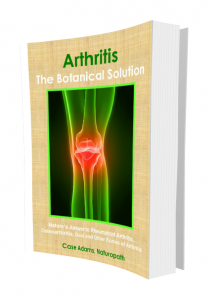Knee Pain Increases Risk of Dying in Women
Knee pain among middle-aged women may or may not mean osteoarthritis. Sometimes there is pain and inflammation in the knee that may not be related to arthritis. But then again, osteoarthritis is also associated with knee pain. Sometimes.
But new research also finds that those with knee pain – regardless of whether it is caused by arthritis – have a significantly increased risk of dying in the decades to come. Furthermore, their risk of dying from heart disease was increased even greater.
In this article
Large study confirms relationships between pain and death
The research comes from the University of Oxford and the Southampton General Hospital. The researchers analyzed 821 women for knee pain and 808 women for hand pain. The researchers utilized examinations where the patients reported pain the hand or pain in the knee. Each patient was tested for osteoarthritis.
Then the patients were followed for 23 years using their records obtained from the Office for National Statistics. This allowed the researchers to establish the longevity and disease records of each patient.
The researchers eliminated relationships that are typical for death, such as weight, common heart disease factors, exercise, occupation, exercise, diabetes, medication use and age.
The researchers found that a middle-aged woman who reported having knee pain had about twice the incidence of death from heart disease during the follow-up period compared with those who did not experience knee pain.
Pain plus Osteoarthritis was worse
Now if the women reported knee pain and also had osteoarthritis, the incidence of death was greater. Those women who reported knee pain with osteoarthritis had nearly three times the incidence of death related to any cause. And those reporting knee pain with osteoarthritis had more than three-and-a-half times the incidence of death from heart disease.
Again, the data eliminated the risks related to the other factors above. So this is specific to knee pain. Regardless of whether the patient had osteoarthritis, knee pain predicted an increased risk of death.
Osteoarthritis alone not linked to dying
For those who are assuming that it is the osteoarthritis that increases the risk of dying – not true. The researchers found that having osteoarthritis alone – without knee pain – did not increase the incidence of death. This was true for both death from any cause and death related to heart disease.
Hand pain not linked to dying
Furthermore, if the patient had pain in their hand – the same sort of pain reported in the knee – this was not linked to an increased incidence of death. This was regardless of whether the patient with pain in the hand had osteoarthritis or not.
The researchers reported these findings in their conclusion:
“We found a significantly increased risk of all-cause and cardiovascular disease-specific mortality in women experiencing knee pain with or without osteoarthritis but not osteoarthritis alone. No relationship was found between hand osteoarthritis and mortality risk. This suggests that knee pain, more than structural changes of osteoarthritis is the main driver of excess mortality in patients with osteoarthritis.”
What is it about knee pain?
One might think that just because they have knee pain, they must have osteoarthritis or some other type of arthritis. Not true.
The difference between osteoarthritis and knee pain is significant. A person may or may not have the extended bone disease of osteoarthritis, and this may not even produce pain.
But having knee pain means there is inflammation in that region. Inflammation is not typically specific to joints. An inflammatory situation in the joints will affectlly also effect the health of the blood vessels and the heart. This is especially true for knee pain because this also relates to the health of the blood vessels in the lower half of the body.
This is because inflammation – which triggers the substance P and produces pain – is typically related to tissue damage. This in turn is typically related to an excess of free radicals. Free radicals are produced in higher degrees through the diet. Oxidation is the process that typically converts certain types of biomolecules to free radicals.
REFERENCES:
Kluzek S, Sanchez-Santos MT, Leyland KM, Judge A, Spector TD, Hart D, Cooper C, Newton J, Arden NK. Painful knee but not hand osteoarthritis is an independent predictor of mortality over 23 years follow-up of a population-based cohort of middle-aged women. Ann Rheum Dis. 2015 Nov 5. pii: annrheumdis-2015-208056. doi: 10.1136/annrheumdis-2015-208056.
Adams C. Arthritis: The Botanical Solution. Nature’s Answer to Rheumatoid Arthritis, Osteoarthritis, Gout and Other Forms of Arthritis. Logical Books, 2012.
















